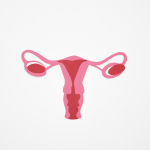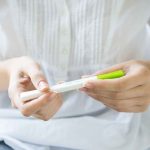
10 Ovulation Symptoms To Get Pregnant
6 min readWritten by Editorial Team


Are you trying to get pregnant for a while now? Tracking your ovulation symptoms can be helpful if you haven’t done it already. There are several reasons that may be the reason behind pregnancy delay. A lot of women find it difficult to conceive because of a lack of knowledge about detecting ovulation symptoms to get pregnant. This is where a good fertility expert can help you with understanding the ovulation window and supporting medications if needed.
Making a baby requires good timing and good sex, and the amalgamation of both in many cases can make you pregnant. Many women chart and track their ovulation timings. This can be different for different women. Having sex on the days when ovulation is likely to happen increases the chances of pregnancy.
In This Article
- What is Ovulation?
- Top 10 Ovulation Symptoms That Help in Identifying in Fertile Period
- Detecting Ovulation With Irregular Periods
- Why is Identifying Ovulation Symptoms Important?
- Using Ovulation Predictor Kits
- Ovulation Calculator
- FAQ’s
What is Ovulation?
Ovulation is the process of release of one or more eggs from the ovary every month during the menstrual cycle. Every month, usually a number of eggs develop and mature within the ovary, and the one that is the most prepared releases from your ovary. After release, the fallopian tubes pick it up and transfer it to the uterine cavity where it meets the sperm and fertilization happens. Ovulation is not at all a process rotating alternately between the two ovaries which is why you never know which ovary will release the egg.
Ovulation is very important for a pregnancy to happen. Regular intercourse around ovulation is mandatory. Try intercourse two to three days prior to ovulation and after ovulation. This is the most fertile period of pregnancy. Sperm cells can live for two to three days, but your egg is alive for 24 hours only. As soon as sperm meets the egg, fertilization occurs and you become pregnant. Timing sex with ovulation is the prime factor that to get pregnant.
Top 10 Ovulation Symptoms That Help in Identifying in Fertile Period

Every other woman has different body characteristics while ovulating, however, some of the symptoms are common. They can help you keep a proper track record of egg release and help you in conceiving with well-timed sex. These simple signs of ovulation will help you identify your most fertile period, and you can try to get pregnant naturally. Moreover, signs and symptoms of ovulation are easy to track, thus you can easily time sex around these days in order to conceive.
1. Changing And Increasing Cervical Mucus
One or two days before ovulation, the cervix starts secreting more mucus than normal. This increased cervical mucus continues during the process of ovulation. This is usually seen as an egg white slippery vaginal discharge, which will be clear and stretchy.
2. Increased Sex Drive
Your sex drive will probably increase during ovulation. Easy sex arousal and increased sex drive happen during the process of ovulation.
3. Swollen Vagina or Vulva
The vaginal labium becomes more sensitive when ovulation occurs. Sometimes the vaginal become a little swollen and sensitive during this phase.
4. Abdominal Pain
Mild to moderate tenderness and abdominal pain is also experienced at the time of ovulation. You might experience tenderness in your tummy (mittelschmerz) for some hours or a few minutes.
5. Breast Tenderness
Often women experience tenderness in one or both breasts during ovulation. The heaviness of breast(s) is also quite common.
6. Abdominal Bloating and Water Retention
Many women experience bloating during the process of ovulation. The changing hormones cause water retention which is one of the major reasons for bloating.
7. Cervix Position
On clinically examining the cervix, it appears soft, high, and more widely open during ovulation. You may also notice the cervix changes its position and feel when you are ovulating.
8. Moodiness or Increased Energy
Mood swings are common during ovulation. You may feel elated or depressed or a mix of both. Hormones are again responsible for the mood swings that happen during ovulation.
9. Spotting
Some women experience slight spotting during the process of ovulation. This happens when the egg is released from the ovary.
10. Headaches, and/or Nausea
Due to hormonal changes, some women notice nausea and headaches a few days before ovulation.
Most women believe that ovulation occurs on the 14th day of periods. This is not always correct. A number of methods are available to detect when you are having ovulation. You can use these ovulation symptom methods to help detect your ovulation window. Some of these methods include
- Recording length of your menstrual cycles
- Basal body temperature charting
- Tracking changes in your cervical mucus
- Urine tests that can detect LH surges(ovulation detection kits)
[Read: How To Detect Fertility Period With Cervical Mucus?]
Detecting Ovulation With Irregular Periods

If you are trying to conceive and have irregular periods, you will probably be worrying as to whether you can track the fertile window when you are ovulating. The good news is that it is very much possible to identify ovulation with irregular periods as well, with pretty decent precision. The first and foremost step in this is to start charting your cycles to arrive at a cycle length. This will give you an average cycle length when done for several weeks, and you can thus track your ovulation window.
You can also detect ovulation by checking your cervical mucus. The closer you are to your fertility window, the cervical mucus will appear stretchy, clear, and slippery. Tracking these dates will give you a fair idea of when you ovulate during your menstrual cycles.
You can also try making a chart for your body’s basal temperature, though you will know that you have ovulated after you notice a spike in your body temperature. Measuring the same regularly will give you an idea of the likely time when you ovulate.
All this information can prove to be very beneficial for your doctor or fertility specialist, who can help you get pregnant.
[Read: Age, Fertility And Ovulation Calendar]
Why is Identifying Ovulation Symptoms Important?
Identifying the process of ovulation is important both for conceiving and avoiding pregnancy. If you know when you are ovulating, you can know your fertile window and can time sex accordingly if you are trying to conceive. A woman is most fertile for about 6 days in her menstrual cycle(including you ovulate) and having sex in this window can boost your chances of conception. Though nothing beats having regular, intimate sex at regular intervals, detecting and knowing when you are ovulating will just give an edge to help you get pregnant.
Using Ovulation Predictor Kits
Ovulation predictor kits look and feel the same as home pregnancy tests, and are a convenient way to detect ovulation. Ovulation tests involve monitoring the level of LH (luteinizing hormone) in urine. LH is the chief hormone responsible for ovulation. A rise in LH usually occurs 24 hours to 36 hours prior to the release of the egg. It, therefore, is a wonderful predictor of fertility. You must use the ovulation predictor kits as per the instructions, but these kits may not work if you have an irregular cycle.
[Read: Best Ovulation Kits And Fertility Monitors In India]
Ovulation Calculator

Your BBT (basal body temperature) prior to ovulation usually ranges between 97.2 to 977 degrees Fahrenheit. Two or three days before ovulation there is a slight increase of 0.4 to 1.0 degrees in BBT.
Having sex near the ovulation window will enhance your chances of getting pregnant. Regular intercourse in and around the process of ovulation is effective enough in amplifying as much as 20 percent more chances of getting pregnant. Around 85 percent of women conceive during the first year of marriage by having sex regularly.
The chances of pregnancy can be boosted by having sex during ovulation. At the same, it is also a useful method to avoid pregnancy if you do not wish to conceive- simply avoid sex during the ovulation period. Learn about your ovulation symptoms and increase your chances of conceiving naturally. Know about your body’s timing and maximize your pregnancy in every cycle.
Undoubtedly the best method of identifying the most fertile and productive time of your cycle is by paying a little attention to your own body and knowing about the ovulation symptoms.
FAQ’s
1. Can I Detect My Ovulation Period?
Yes, you can. There are ovulation kits. You can use fertility monitors too.
2. Can Ovulation Kits Increase My Chances of Getting Pregnant?
No, it doesn’t work that way. It can only tell you when you are ovulating. Planning around this time increases your chances.
3. Does a Higher Body Temperature Mean am Ovulating?
Yes, it does. Basal body temperature is an indication of ovulation. It is usually high during this period.
4. Does Vaginal Discharge Change During Ovulation?
Yes, it does. The discharge is usually much more than usual. Your body is getting ready to help the sperm travel better.
Read Also: Fertility Monitor Vs Ovulation Kits

Editorial Team,
With a rich experience in pregnancy and parenting, our team of experts create insightful, well-curated, and easy-to-read content for our to-be-parents and parents at all stages of parenting.Read more.
Responses (0)
Want curated content sharply tailored for your exact stage of parenting?
Related articles

Can PCOS-Related Medications Affect Fertility?

Acupressure Points For Fertility – Everything You Need To Know

AMH Testing For Ovarian Reserve – How Does it Help and How is it Done

Evening Primrose Oil For Fertility – Does it Help to Conceive, How to Take and Side Effects

LH Surge – What and How is it Detected to Help in Getting Pregnant

Fertility Juice to Get Pregnant – Does it Help and Top Fertility Juices
Sponsored content
Discover great local businesses around you for your kids.
Get regular updates, great recommendations and other right stuff at the right time.





